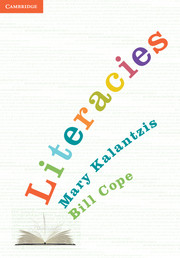Book contents
- Frontmatter
- Contents
- Acknowledgements
- Introduction The work of learning and teaching literacies
- Part A The ‘Why’ of Literacies
- Part B Approaches to Literacies
- Chapter 3 Didactic literacy pedagogy
- Chapter 4 Authentic literacy pedagogy
- Chapter 5 Functional literacy pedagogy
- Chapter 6 Critical literacies pedagogy
- Part C The ‘What’ of Literacies
- Part D The ‘How’ of Literacies
- References
- Index
Chapter 5 - Functional literacy pedagogy
from Part B - Approaches to Literacies
- Frontmatter
- Contents
- Acknowledgements
- Introduction The work of learning and teaching literacies
- Part A The ‘Why’ of Literacies
- Part B Approaches to Literacies
- Chapter 3 Didactic literacy pedagogy
- Chapter 4 Authentic literacy pedagogy
- Chapter 5 Functional literacy pedagogy
- Chapter 6 Critical literacies pedagogy
- Part C The ‘What’ of Literacies
- Part D The ‘How’ of Literacies
- References
- Index
Summary
Overview
Functional approaches to literacy focus on students learning the texts that enable them to succeed at school and to participate in society. Their aim is for learners to understand the reasons why texts exist and how this affects the shape of texts. Unlike didactic approaches to literacy, which break language into its parts in order to learn formal rules, functional approaches start with the question, ‘What is the purpose of this whole text?’ and then move on to the next question, ‘How is the whole text structured to meet these purposes?’ Reading and writing are closely linked activities and learners explore the ways different kinds of texts work to make different meanings in the world. To show the ways in which functional approaches to literacy learning work, this chapter explores one example: the ‘genre’ approach.
- Type
- Chapter
- Information
- Literacies , pp. 118 - 144Publisher: Cambridge University PressPrint publication year: 2012



